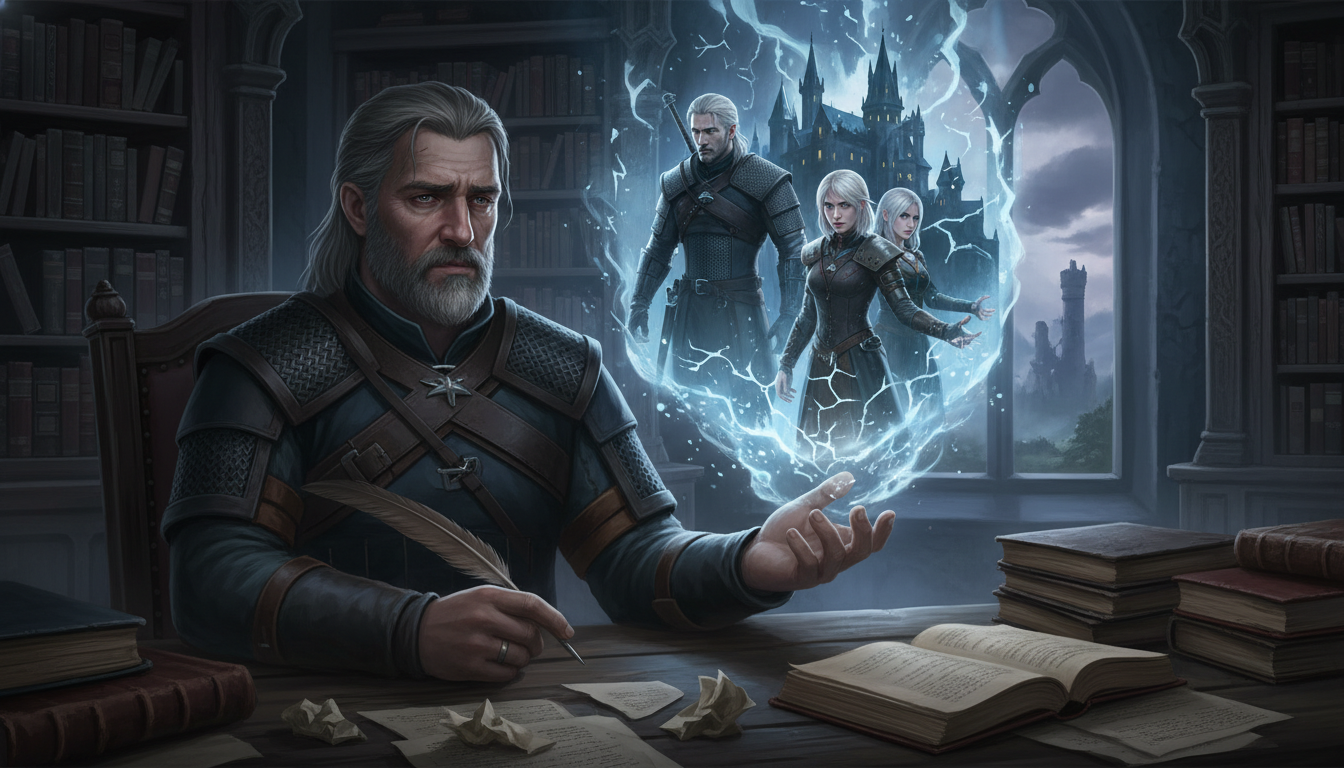The Witcher's Creator Disavows Core Game Lore as a 'Mistake' He Regrets Writing
2025-10-01

Image credit: AI-generated by Gemini Imagen
In a stunning public declaration that drives a wedge between a book series and its celebrated video game adaptation, The Witcher author Andrzej Sapkowski has dismissed a cornerstone of the game's world-building as "completely unnecessary." Speaking at Vienna Comic Con, the author revealed that the entire, sprawling lore of rival Witcher schools—a concept central to CD Projekt RED's universe—stems from a single sentence in his books that he now considers a "mistake" and wishes he had never written.
This is not merely a creator expressing a minor grievance; it is a public disavowal of a foundational element that has defined the game series for its vast fanbase. For years, the different schools of the Wolf, Cat, Griffin, and Viper have provided rich narrative texture and player identity within the games. Sapkowski has now designated that entire branch of the lore as an accident, a throwaway line he deemed "unworthy of development," creating a stark divide between the author’s canon and the one cherished by a global gaming community.
A Regrettable Sentence
The origin of this vast, in-game mythology, according to its own creator, was an error. During his appearance at Vienna Comic Con, Sapkowski explained that the entire concept was born from a single, ill-considered line.
"I made a mistake in one of my books, I put in one sentence too many," Sapkowski stated in a quote reported by Eurogamer. "I wrote that there were witchers from the School of the Cat, the Griffin and the Viper, but it was a mistake. I now regret it."
His critique went beyond simple regret, dismissing the concept as fundamentally flawed. "I deemed it unworthy of development and narratively incorrect," he said, according to GamesRadar. For Sapkowski, the world of Witchers was meant to be singular and focused. As he plainly stated in a comment cited by IGN, "It was completely unnecessary for them to do this because my protagonist is, was, and will be forever from the School of the Wolf."
The Tenacity of "Video Game People"
Sapkowski’s comments drew a clear line between his original vision and the direction taken by the games' developer, CD Projekt RED. He noted how the studio had seized upon the very idea he had dismissed.
"But I put this sentence there, and the video game people, with remarkable tenacity, have clung to the idea and developed it," he explained, in a quote reported by both GamesRadar and PCGamer. The author’s choice of words suggests a bemused distance from the adaptation that made his work a global phenomenon, framing the game’s creators as a group that latched onto a narrative thread he himself had abandoned.
This perspective creates a fascinating conflict. The very lore that the author considers a mistake—the armor sets, the divergent philosophies, the unique characters from different schools—has become an integral and beloved part of the player experience. The "remarkable tenacity" of the developers has, for a vast community of players, become the established canon.
The Silence from Kaer Morhen
While the author has made his feelings unequivocally clear, a crucial voice in this conversation remains silent. The dossier of initial reports contains no official statement or reaction from the developer, CD Projekt RED, regarding Sapkowski's pointed comments. The studio now finds itself in the unique position of building the future of its franchise on a foundation its original creator has publicly condemned.
This silence leaves a number of critical questions unanswered. With the next major installment of the series, codenamed 'Polaris,' widely expected to focus on a new, game-created Witcher school, Sapkowski's dismissal casts a shadow over its narrative legitimacy. Furthermore, the reports do not specify which book contains the sentence in question or quote it verbatim, leaving the "mistake" itself shrouded in a degree of textual mystery.
Andrzej Sapkowski has drawn his line in the sand, separating his literary world from the interactive one it inspired. This leaves CD Projekt RED and a global community of players in a unique position, inhabiting a world whose foundational lore is now publicly contested by its original architect. The creator may wish to put the cat back in the bag, but for the world of the games, that lore is as real and as vital as Geralt of Rivia himself. How this fundamental divide between authorial intent and adopted canon will shape the future of the franchise is now one of its most compelling questions.